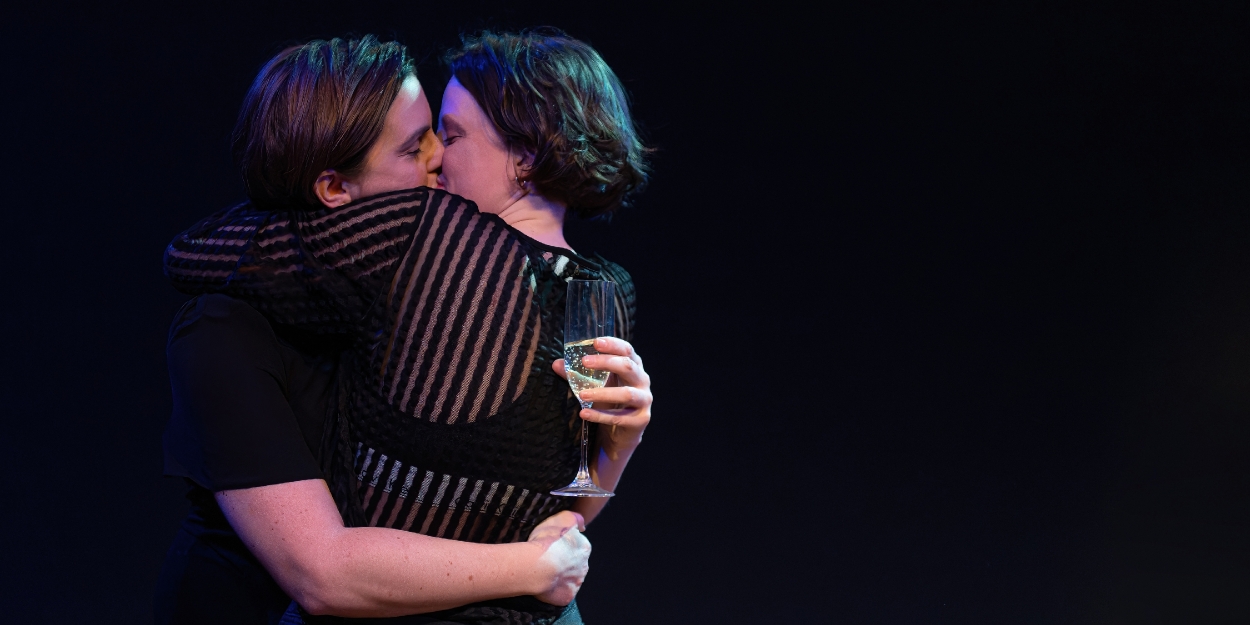Review: THE BEACH HOUSE, Park Theatre
Shortlisted for Liverpool Hope Playwriting Prize, Jo Harper's play is a gentle exploration of female relationships, motherhood, and the inescapable tragedy of feeling.

![]() With a baby on the way, Kate and Liv buy a house near the sea to raise a family. After Lola's traumatic birth, Kate struggles to connect with her daughter, Liv is sucked into motherhood, and Kate's sister Jenny becomes a regular visitor at their home. While Jenny tries to break away from her overbearing sibling, the couple is growing apart.
With a baby on the way, Kate and Liv buy a house near the sea to raise a family. After Lola's traumatic birth, Kate struggles to connect with her daughter, Liv is sucked into motherhood, and Kate's sister Jenny becomes a regular visitor at their home. While Jenny tries to break away from her overbearing sibling, the couple is growing apart.
Jo Harper's The Beach House is a play that explores the space between the parallel lines of infidelity and loyalty, lust and apathy, resentment and forgiveness. In a landscape dominated by a dearth of lesbian stories, it's refreshing to find one that doesn't deal with sexuality at all, but focuses on the negotiations of parenthood and the complications of personal connections. Bethany Pitts toys with the visual and figurative distance between her cast in a natural, effortless 360° direction.
Multi-instrumentalist Holly Khan's gorgeous soundscape is central and crucial to the storytelling. From the smooth jazz of a stolen kiss to the soft violins and haunting vocals of Liv's tormented creative process, Khan's tunes are elegant in their eclecticism. Her sound design is equally impressive. A leak in the roof drops into a bucket becoming the symbolic tell-tale heart of Liv and Kate's relationship, becoming louder as their issues evolve.
The physical side of the production is sophisticated in its details. Kate's initial effusions towards Liv become progressively colder, freezing against Liv and Jenny's secret, crackling chemistry. Kathryn Bond is a commanding presence as the tired, overwhelmed, unsuspecting mother and partner. Her pragmatism seeps into every aspect of her life and is direct opposition to both her partner and her sister's attitudes.
Gemma Barnett's Jenny is her polar opposite, her hair as unruly as her spirit. Where Kate is established in her job and seems to have her life together, she bounces from job to job, insecure about her position in relation to Kate and intimidated by her achievements. They share a strained connection, both envious of the other on some level and unafraid to weaponise their feelings. Liv sits halfway between them. Gemma Lawrence introduces a songwriter who's struggling to work. She uses her newborn as an excuse to avoid her creativity, balancing her identity on the edge of the blade of motherhood.
While accomplished in her writing, Harper has a tendency to assign traditional gender roles to non-traditional characters, which is mildly annoying but realistic in the bigger picture. Kate is the breadwinner while Liv suddenly becomes a stay-at-home mum, neglecting her own career. Then, when things get rough between them, she is semi-forced to find employment to make up for her apparent shortcomings, as if childcare wasn't a full-time commitment and Kate hadn't escaped back to work immediately after giving birth.
Laura Howard floods Cara Evans' set with golden dapples of light and blue hues. The actors stare past the audience, implying big windows and an airy seaside atmosphere on a hardwood platform with a wooden chest in the middle. Minimal props avoid any accidental distractions, putting the narrative - visually and metaphorically - in the round. It's an exquisitely crafted production.
Harper views motherhood from three different angles. Jenny's begrudging renunciation, Liv's embracing of it, and Kate's ultimately complicated tie to it. It's a gentle exploration of female relationships and the inescapable tragedy of feeling.
The Beach House runs at the Park Theatre until 11 March.
Photo credit: David Monteith-Hodge
Comments
Videos

